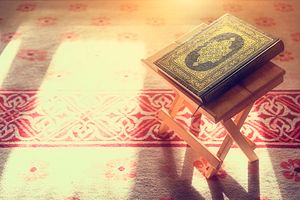Ever since the British East India Company showed up in 1757, the fractious relationship between Hindus and Muslims has been deeply impacted India. Now, according to a new study from the Pew Research Center, India will have 1.3 billion Hindus and 311 million Muslims by 2050. This will make India the “largest” Muslim country. Today, India has the third largest population of Muslims in the world, at 177 million, behind Pakistan, at 178 million, and Indonesia, at 204 million. Muslims comprise about 14 percent of India’s population.
What will account for the population bulge? Conrad Hackett, the Pew demographer who authored the study, chalks it up to two factors. First, India’s Muslims are exceptionally young, with a median age of 22, compared with 26 for Hindus and 28 for the small Christian community. Second, Muslims have a high fertility rate, with an average of 3.2 children per woman. In total, that will lead the Muslim community to a 76 percent growth rate over the next 35 years, ahead of Hindus at 33 percent and Christians at 18 percent.
These changes will have huge political ramifications. With the Bharatiya Janata Party (BJP) in power, often under fire for its Hindu nationalist approach to politics, there has been an uptick in religious strife over the past year. Earlier this month, Sanjay Raut, a member of the fringe Shiv Sena party in parliament, which coalitions with the BJP, floated the idea of denying Muslims the right to vote in Maharashtra, India’s second largest state. That may have been a response to All India Majlis-E-Ittehadul Muslimeen (AIMIM) capturing two seats in state by-elections last year, and running up impressive tallies in other districts.
Even Prime Minister Narendra Modi has found himself the subject of criticism. In 2002, then the chief minister of Gujarat, Modi faced accusations that he did little to stop riots that claimed the lives of hundreds of Muslims. A special investigation later cleared him of any wrongdoing, but the charges continue to dog Modi at the polls: only 8 percent of Muslims voted for the BJP and its coalition partners in the general election last year.
AIMIM is one of five Muslim parties with a major following in India, group which have grown as younger voters have become disenchanted with the Congress Party. These include the Popular Front of India (PFI), a successor to the National Development Front based in New Delhi, Tamil Nadu’s Muslim Munnetra Kazhagam, the Indian Union Muslim League, and the Social Democratic Party of India. These organizations could be primed for spectacular growth over the course of the 21st century, or could be supplanted by groups that are more tuned in to youth interests.
The projected demographic changes suggest that India’s political scene is due for tremendous growth and change over the next 35 years. If trends hold, Muslims will be more influential than ever in setting that course.
































